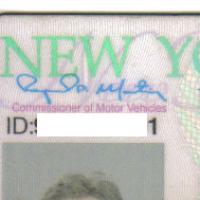訊息: 39
語言: English
erinja (顯示個人資料) 2007年3月21日下午8:25:28
Mendacapote (顯示個人資料) 2007年3月21日下午9:19:36
Islander (顯示個人資料) 2007年3月22日上午12:34:54
It sounds so funny you think they are pulling your leg!Well, not speaking spanish I'll trust you on that one. I got Sergeant, now and boot! Not that funny like that...

Mendacapote (顯示個人資料) 2007年3月22日上午1:00:46
The hilarious point isn’t the content, but the mispronunciation! If you miss some “s” and add others where they don’t fit, it sounds very funny. The incredible thing is that they actually talk that way!!!
pastorant (顯示個人資料) 2007年3月22日上午1:06:22
Mendacapote:Yes! For example in Guantánamo, Cuba. There is a joke: “Sargento Acota, Sargento Acota: preséntese en la Pota, con el caco y la bota puetassss”. (Sargento Acosta, Sargento Acosta; preséntese en la Posta con el casco y las botas puestas) It sounds so funny you think they are pulling your leg! In some areas of Colombia they change “s” for “j”: The say: Jí, Jeñora! (Sí, Señora). But it’s a very quick and aspirated “j” (sounds like a soft “h” in English). Beside that, we all in America mispronounce the “c” and “z”; we pronounce it like “s” (if we pronounce it at all!!!).Yo lo se, mi ciudad tiene muchos borinqueños.
And when they speak English it sounds very funny.
Por ejemplo:
I pick panis. I no pick inglis.
(I speak Spanish. I don't speak English)
My spanish accent I'm told is muy peruano, but I can speak "in the barrio" and pronounce my Spanish like Puerto Ricans or Mexicans.
Like not pronouncing plurals. That ANNOYS new learners! Necito do caja (I need 2 boxes)
I'm not sure if I just picked up really bad habits though

Mendacapote (顯示個人資料) 2007年3月22日上午1:31:00
pastorant (顯示個人資料) 2007年3月22日上午3:00:15
Mendacapote:Well I learned to speak English by myself listening to the radio and watching American movies. So I speak a sort filthy, freaky and broken American English. Some American friends say it sounds “good”, but too rude. I’ve being trying to make it more “potable”, more polite, with less cursing and swearwords. The problem is that you follow some patterns and they fix deep in your brain… and believe me, it’s tough to get rid of the wrong ones! My advice: Don’t learn broken, mispronounced Spanish. It isn’t that important to look “native”, but to speak it clean, clear and well.Very true. I appreciate the advice. While I did learn proper "Castillian", I've lately (embarrassingly) been switching to a more guttural "street" form. Mexican friends years ago would laugh when I spoke with the characteristic "lisp" (s and c/z).
After years of being self-conscious, and being surrounded by "crude" Latinos, I changed my accent. I hear that they speak "cleaner" in Venezuela, Peru and Ecuador, verdad?
P.S. I'm very impressed that you were able to learn English the way that you did. If i tried to learn Chinese with nothing but TV and the radio, 10 years later I wouldn't know any more than I did to start

pastorant (顯示個人資料) 2007年3月22日上午3:07:08
Mendacapote: more polite, with less cursing and swearwords.It's an unwritten rule that only native speakers are allowed to curse! Have you ever heard some gringo try to impress others with his command of Spanish curses? It's horrible. Foreigners also tend to overuse filthy language, when it is clearly not needed. I heard a Turkish barber actually say this "Pass me the f---in scissors"
My JAW fell to the floor.


When I was in Germany, I heard an American using his paltry German, and littered his sentences with the word Mist!
(look it up, I'm not helping you
 )
)The worst part, it wasn't even grammatically correct usage!
I was always taugth as a kid, you can only swear if it's grammatically correct. Thet removes ober 80%

annadahlqvist (顯示個人資料) 2007年3月22日上午3:17:04
DesertNaiad (顯示個人資料) 2007年3月22日上午3:51:18
erinja:You're right that I'm a native English speaker, and I do say Bach correctly, so that does help. *imangines correcting my pronunciation with composers' names for the next few months* lolDesertNaiad: H and ĥ are harder for me than either c or r though. I can't even hear the difference most of the time, yet.Really? I find them quite different. The ĥ is like the ch in "Bach", which I don't think anyone would ever confuse for a plain h.




